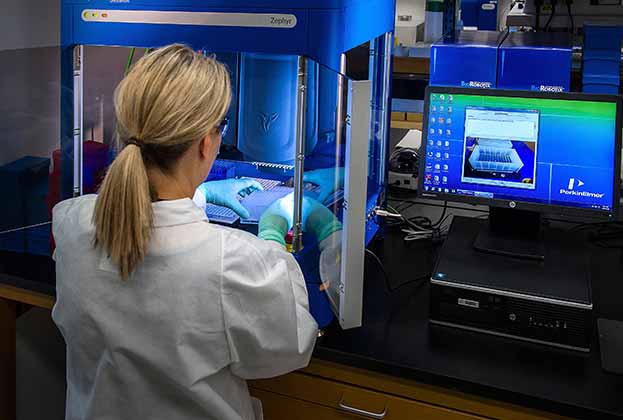Small and midsize enterprises (SMEs) have a big role to play in UK science
What are the benefits of small and midsize enterprises (SMEs) working with big pharma?
The main benefits of SMEs working with Big Pharma is additional funding for development of their platforms and products along with access to the development expertise and commercial infrastructure which is necessary for product development, approval, manufacture and supply. It also provides credibility to existing and prospective investors in the SME, particularly when the SME is considering an IPO.
There are several models of partnering to consider from funding pre-clinical work with an option to license on proof of concept through to a full license which gives them rights to develop and market the product in return for milestone payments and royalties on sales. Generally, the earlier in development the product is partnered the lower the value is for the SME.
Many SMEs will partner their lead product when it has achieved clinical proof of concept which will provide them with additional revenue to fund other programmes. However, the downside is that they may then lose control of the development timelines (which is their lead value driver for investors) because of Big Pharma process and decision-making and can be competing for funds with other programmes within the Big Pharma pipeline so the SME has to ensure that appropriate and effective joint project management processes are in place to avoid this.
There are some exciting developments which will continue to make the UK a very attractive place for growth and investment
Dr Steve Chatfield, Life Sciences Special Adviser, Savills Research
There are also encouraging signs of improving government support for the sector in terms of defined pension contributions, Horizon Europe and more investment into clinical and regulatory areas what would this mean for occupiers’ long term?
There are some exciting developments which will continue to make the UK a very attractive place for growth and investment across the life sciences industry which is good news for attracting occupiers going forward with the prospect of a better landscape for investment, more streamlined regulatory pathways and enhanced potential for funded international collaborations.
The pandemic has driven new innovation in the development of medicines and the UK was at the heart of this. Novel genomic technologies were developed and approved in months rather than years through the use of novel collaboration models and partnerships between Industry, Government, Healthcare systems, regulators and payers which is now embedded in the UK life science sector. This also led to innovation around clinical trial design and regulatory science which has the potential to shorten approval times for new medicines.

Brexit was a significant factor in the downturn of investment and funding in the life sciences sector in the UK, companies found it less attractive to invest and locate here because of factors such as the UK no longer being part of the European Medicines Agency (making it less attractive for carrying out clinical studies) and the loss of access to the EU research fund, Horizon Europe.
The UK is now taking steps to address this. The Government has recently announced that it is supporting the MHRA with additional funding to allow it to become faster and nimbler. Partnerships are also being explored with trusted international agencies such as in the US, Europe and Japan to provide rapid approvals for medicines and technologies that have already received approval in these territories. There is also a move towards realigning with the EMA in terms of clinical trials and shipping of materials.
It has also been announced that the UK will reassociate with Horizon Europe which will be a huge boost for funding of scientific research in the UK. Since Brexit, researchers have been forced to rely on UK-equivalent grants and funding instead of being seamlessly integrated into Horizon Europe and this has meant a reduction in funding and international collaboration. Scientists will once again have access to the world’s largest research collaboration programme.
The current fund has around €85bn of funding remaining for the life of the programme which ends in 2027. The UK science base has been a big recipient of Horizon Europe funding prior to Brexit. As importantly, it opens up the opportunity for enhanced international collaboration which is key for innovation and making the UK an attractive place to locate for potential collaborating companies and researchers. The UK will be able to fully participate from 1st January 2024 and will be eligible to apply for 2024 calls that open this year.
The negotiated deal is described as a ’bespoke deal’ meaning that the UK will not pay into Horizon Europe for the three years as it has not been part of the scheme. From 2024, the UK will then provide around €2.6bn annually into Horizon but has obtained a ’clawback mechanism’ to ensure it does not contribute much more than it receives in grants meaning that the UK will be compensated if British scientists receive significantly less money than the UK puts into the programme. This is an important mechanism as the lead time for re-establishing the level of grant funding could take several years.
The agreement also includes an overperformance indicator, which means the UK will not be penalised for overperforming which is a likely scenario.
Another important government initiative is The Global Britain Investment Fund of £1.4bn programme of public funding designed to strengthen the UK economy through investments in particular high growth sectors, including life sciences. Around £300m has been allocated to the Life Sciences Manufacturing and Innovation Fund which is aimed at strengthening the medicines manufacturing base and providing manufacturing robustness in the event of another pandemic.
One other political initiative that is worth mentioning is the proposal to boost long-term investment in technology and science through allowing defined contribution pension fund investment into innovative UK companies. These plans are to be announced by the Autumn and if they come to fruition could be worth could be worth £10s of billions.
Read the articles within Spotlight: Life Sciences – Trends & Outlook below.
.jpg)


.jpg)



.jpg)